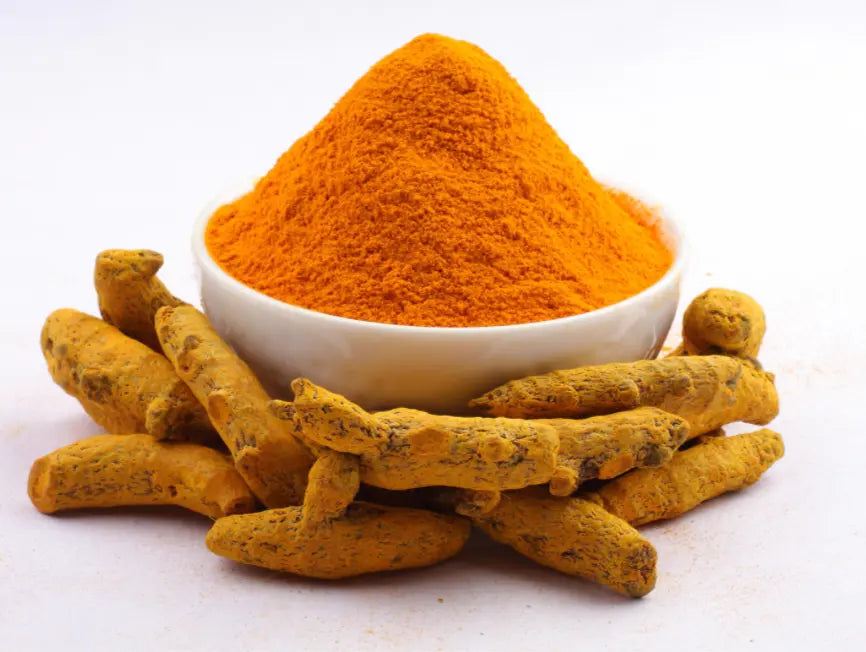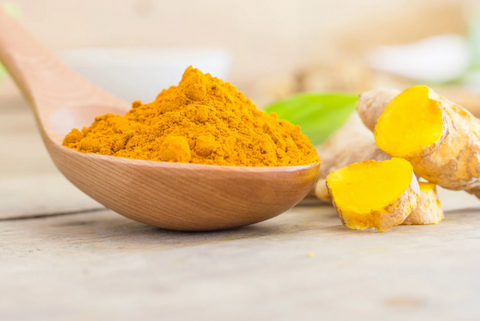Health benefits of Turmeric for Dogs and Cats

Health benefits of Turmeric for Dogs and Cats
As pet owners, we always want the best for our furry friends. We strive to provide them with the best care, nutrition, and overall wellness.
One way to do this is by exploring natural remedies and supplements. One such supplement that has gained attention is turmeric.
Turmeric, a spice commonly used in cooking, is known for its health benefits in humans. But did you know it can also be beneficial for your pets?
In this article, we delve into the health benefits of turmeric for dogs and cats. We'll explore how this golden spice can contribute to your pet's wellness.
From its anti-inflammatory properties to its potential role in cancer prevention, we'll cover it all. We'll also address common concerns and provide guidance on safe usage.
So, if you're interested in natural pet supplements and animal wellness, keep reading. This guide is for you.
Understanding Turmeric and Its Active Compound
Turmeric is a vibrant yellow spice, often used in Asian cuisine. It's derived from the root of the Curcuma longa plant, native to India and Southeast Asia.
The health benefits of turmeric are attributed to curcumin, its active compound. Curcumin is known for its potent anti-inflammatory and antioxidant properties. It's this compound that could potentially benefit your pet's health.
The Anti-Inflammatory Power of Turmeric
Inflammation is a natural response to injury or illness. However, chronic inflammation can lead to various health issues in pets, just like in humans. This is where turmeric comes into play.
Curcumin, the active compound in turmeric, has been studied for its anti-inflammatory properties. It works by blocking NF-kB, a molecule that turns on genes related to inflammation. This action can help reduce the inflammation associated with various pet health conditions.
Here are some conditions in pets where turmeric's anti-inflammatory power can be beneficial:
- Arthritis
- Allergies
- Digestive issues
- Skin conditions
by Juan José Valencia Antía (https://unsplash.com/@juanantia)
Turmeric for Joint Health and Arthritis
Joint health is a significant concern for many pet owners, especially those with older dogs and cats. Arthritis, a common condition in aging pets, can cause discomfort and limit mobility. Turmeric may offer a natural solution.
The anti-inflammatory properties of curcumin in turmeric can help alleviate the inflammation associated with arthritis. This can potentially reduce pain and improve mobility in pets suffering from this condition. However, it's important to consult with a veterinarian for the appropriate dosage and administration.
Turmeric's Role in Immune Support and Cancer Prevention
Turmeric's antioxidant properties can play a crucial role in supporting your pet's immune system. Antioxidants help combat free radicals, harmful compounds that can damage cells and contribute to disease. By reducing oxidative stress, turmeric may help keep your pet's immune system strong.
Research also suggests that turmeric may have anti-cancer properties. Curcumin, the active compound in turmeric, has been studied for its potential to inhibit the growth of cancer cells. While more research is needed, these findings are promising for pet owners looking for natural ways to support their pet's health.
However, it's important to remember:
- Turmeric is not a cure for cancer or any other disease.
- Always consult with a veterinarian before starting any new supplement regimen for your pet.
- Monitor your pet's reaction to the supplement and adjust the dosage as needed.

Digestive Health and Turmeric
Turmeric can also contribute to your pet's digestive health. The anti-inflammatory properties of curcumin can help soothe the gut lining and aid digestion. This can be particularly beneficial for pets with digestive issues such as gastritis or inflammatory bowel disease.
However, it's important to start with small doses. Some pets may experience gastrointestinal upset when first introduced to turmeric. Always monitor your pet's reaction and consult with a veterinarian if you notice any adverse effects.
Dosage and Administration: How Much Turmeric for Your Pet?
Determining the right dosage of turmeric for your pet can be tricky. It largely depends on their size, weight, and overall health. As a general rule, a common recommendation is to give 15-20mg per pound of body weight for dogs, and a smaller dose for cats due to their different metabolism.
However, it's always best to consult with a veterinarian before starting any new supplement regimen. They can provide a more accurate dosage based on your pet's specific needs. Here are some general guidelines to consider:
- Small dogs or cats: Start with a pinch of turmeric daily
- Medium dogs: A quarter of a teaspoon daily
- Large dogs: Half a teaspoon daily
Remember, it's best to start with a smaller dose and gradually increase it. Monitor your pet's reaction to the supplement and adjust the dosage as needed.
Potential Side Effects and Interactions
While turmeric is generally safe for pets, it's important to be aware of potential side effects. Some pets may experience gastrointestinal upset, including diarrhea or nausea, especially when first introduced to the supplement. If these symptoms persist, it's best to discontinue use and consult with a veterinarian.
Additionally, turmeric may interact with certain medications. For instance, it can thin the blood, which could be a concern for pets on blood-thinning medications or those undergoing surgery. Always discuss with your vet before adding turmeric to your pet's diet if they are on any medication.
Choosing the Right Turmeric Supplement for Your Pet
When it comes to choosing a turmeric supplement for your pet, quality matters. Not all supplements are created equal, and some may contain additives or fillers that could be harmful to your pet. It's crucial to choose a reputable brand that guarantees the purity and potency of their product.
Here are a few things to consider when choosing a turmeric supplement for your pet:
- Check for third-party testing to ensure quality and safety.
- Look for a product that contains piperine or black pepper extract, which can enhance the absorption of curcumin.
- Avoid products with unnecessary additives or fillers.
- Consider the form of the supplement. Some pets may prefer a chewable tablet or a powder that can be mixed into their food.
Success Stories: Pet Owners' Experiences with Turmeric
Many pet owners have shared their positive experiences with using turmeric for their pets. From improved mobility in older dogs to reduced inflammation in cats with arthritis, these stories highlight the potential benefits of this natural supplement. However, it's important to remember that results can vary, and what works for one pet may not work for another. Always consult with a veterinarian before introducing a new supplement into your pet's diet.
FAQs: Common Questions About Turmeric for Pets
Pet owners often have many questions when considering a new supplement like turmeric. Here, we address some of the most common queries.
- Is turmeric safe for pets? Yes, when used correctly and in moderation, turmeric is generally safe for both dogs and cats. However, it's always best to consult with a vet before introducing any new supplement into your pet's diet.
- How much turmeric should I give my pet? The dosage depends on your pet's size, weight, and overall health. A general guideline is to start with a small amount and gradually increase it.
- Can turmeric interact with other medications? Yes, turmeric can interact with certain medications, such as blood thinners. Always inform your vet about any supplements your pet is taking.
- Can my pet have an allergic reaction to turmeric? While rare, some pets may have an allergic reaction to turmeric. Signs of an allergic reaction include itching, swelling, and difficulty breathing. If you notice any of these symptoms, stop giving your pet turmeric and contact your vet immediately.
- Can I give my pet turmeric every day? This depends on your pet's health and the advice of your vet. Some pets may benefit from daily supplementation, while others may only need it occasionally. Always follow your vet's guidance.
Conclusion: Integrating Turmeric into Your Pet's Wellness Routine
Incorporating turmeric into your pet's diet can potentially offer numerous health benefits. However, it's crucial to remember that every pet is unique. Always consult with your vet before starting any new supplement regimen. With patience and careful monitoring, turmeric could become a valuable addition to your pet's wellness routine.






